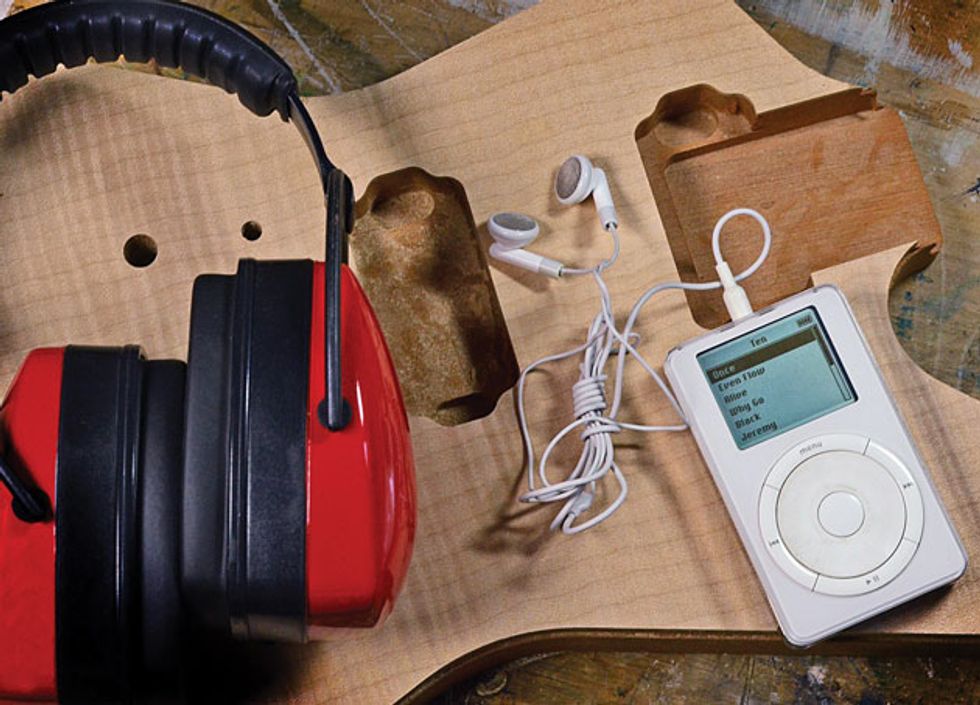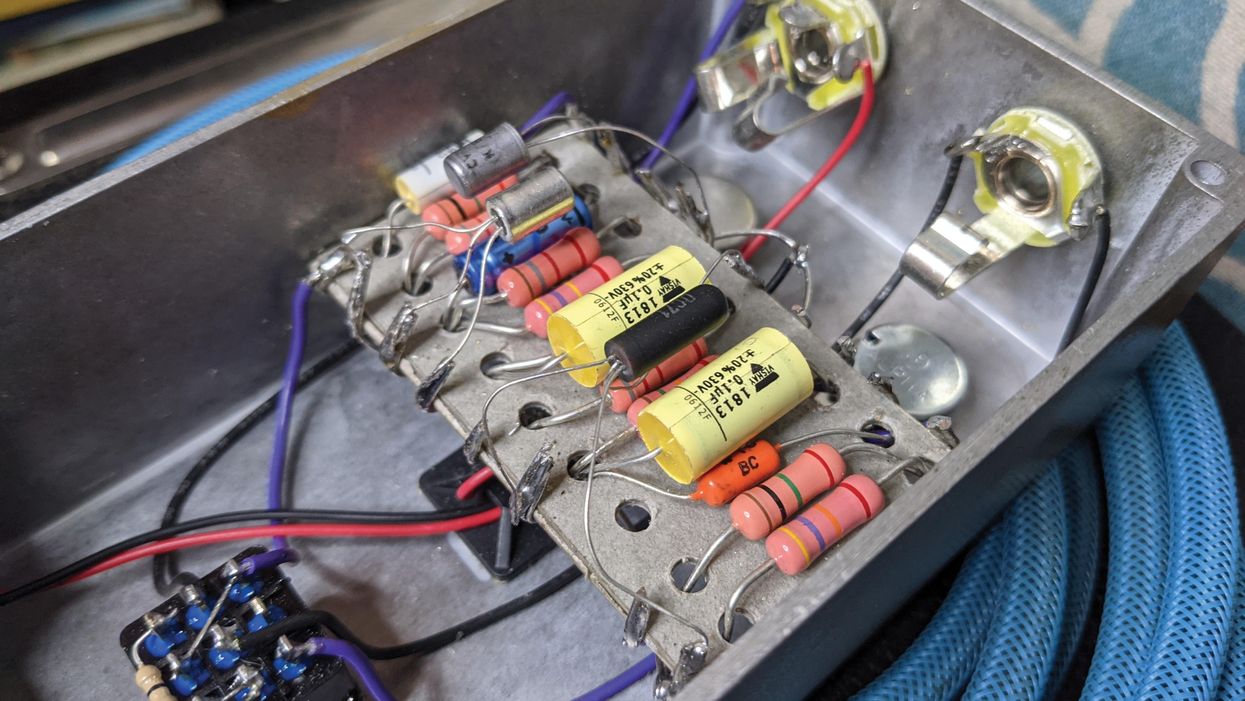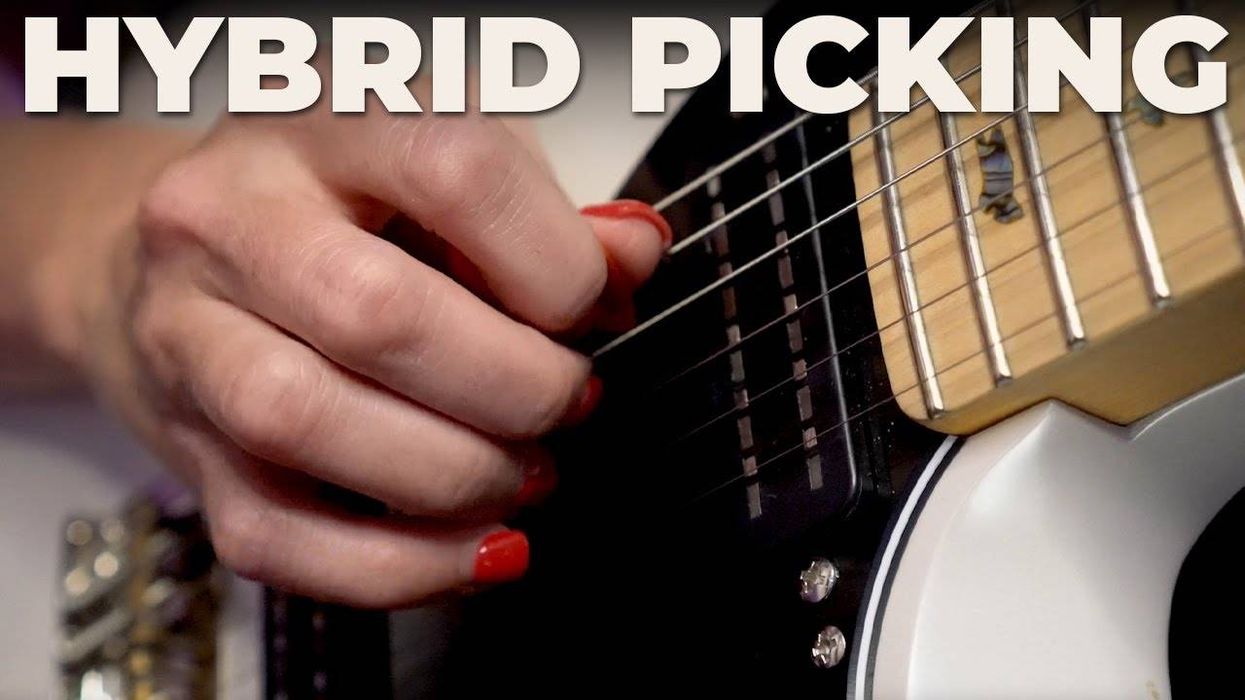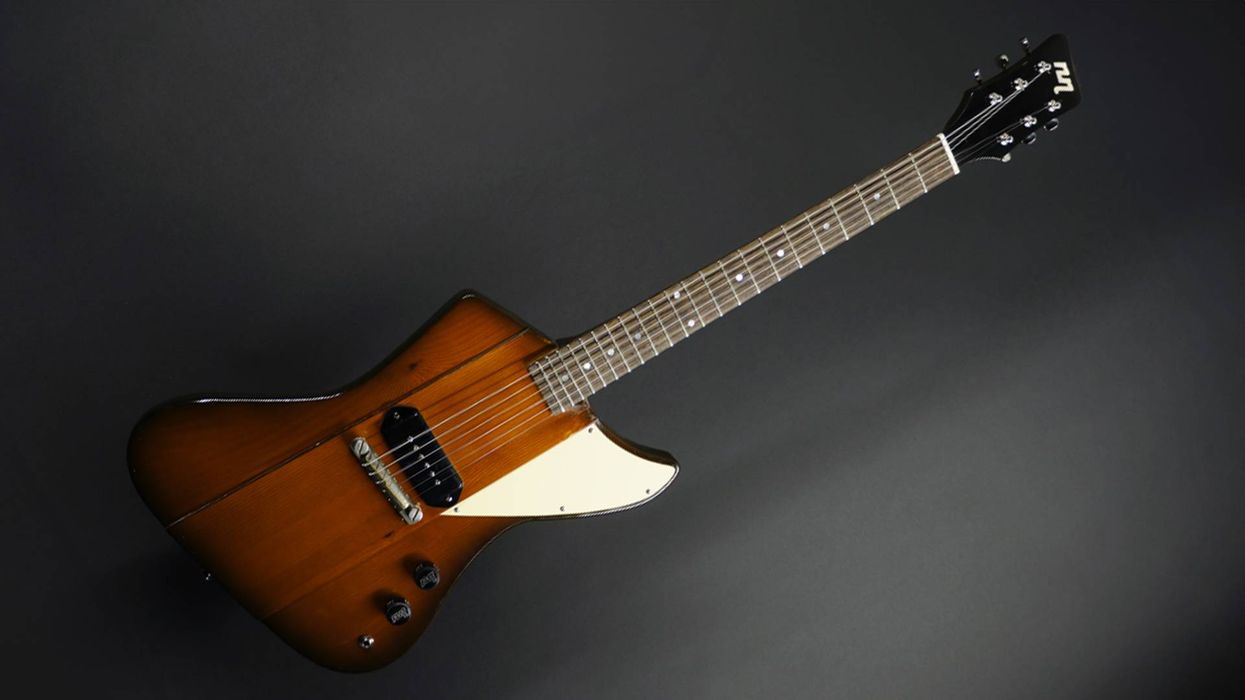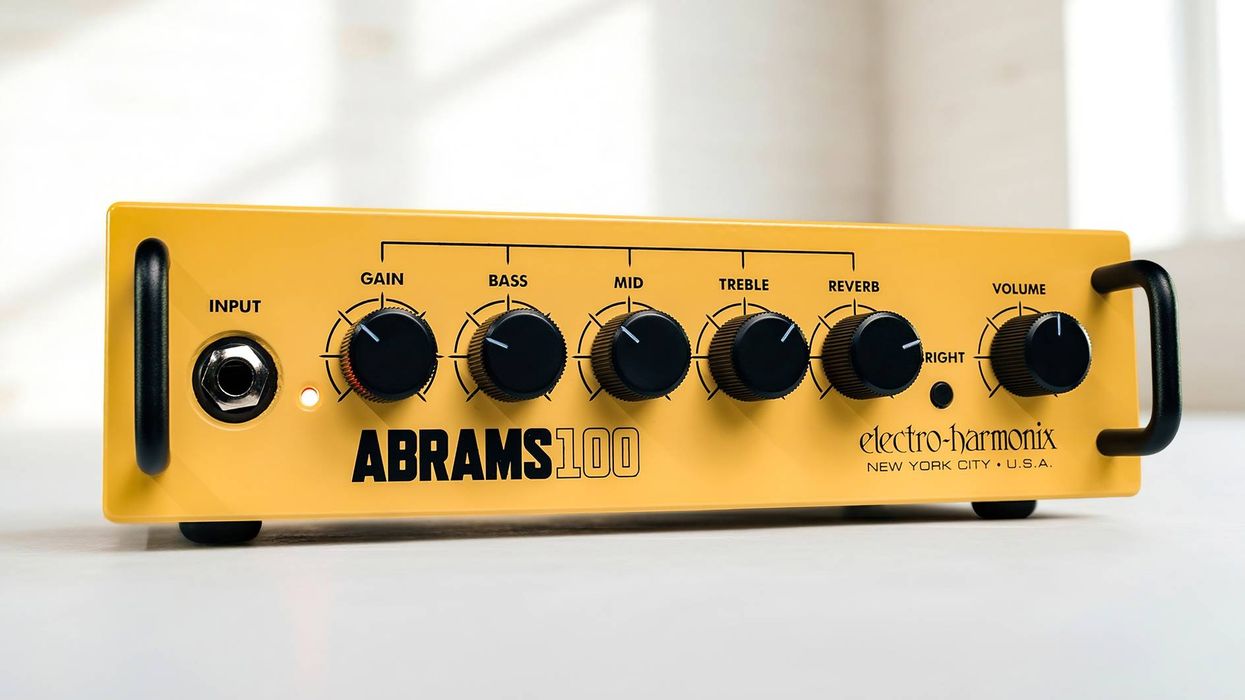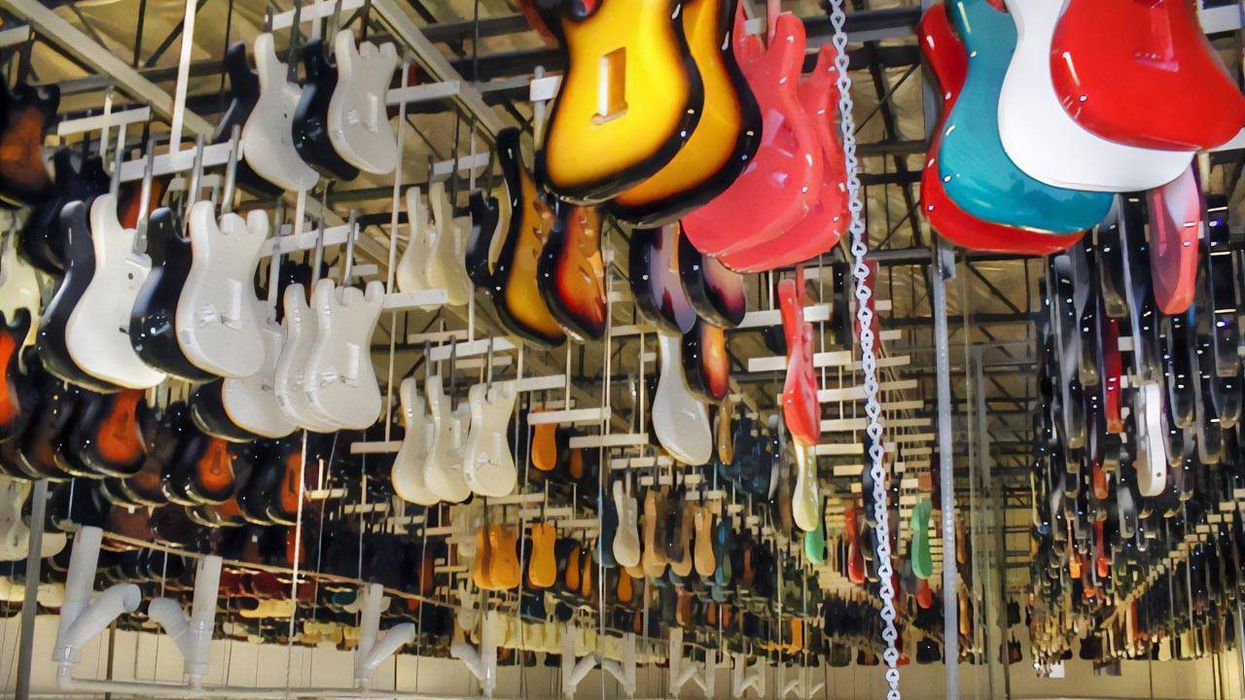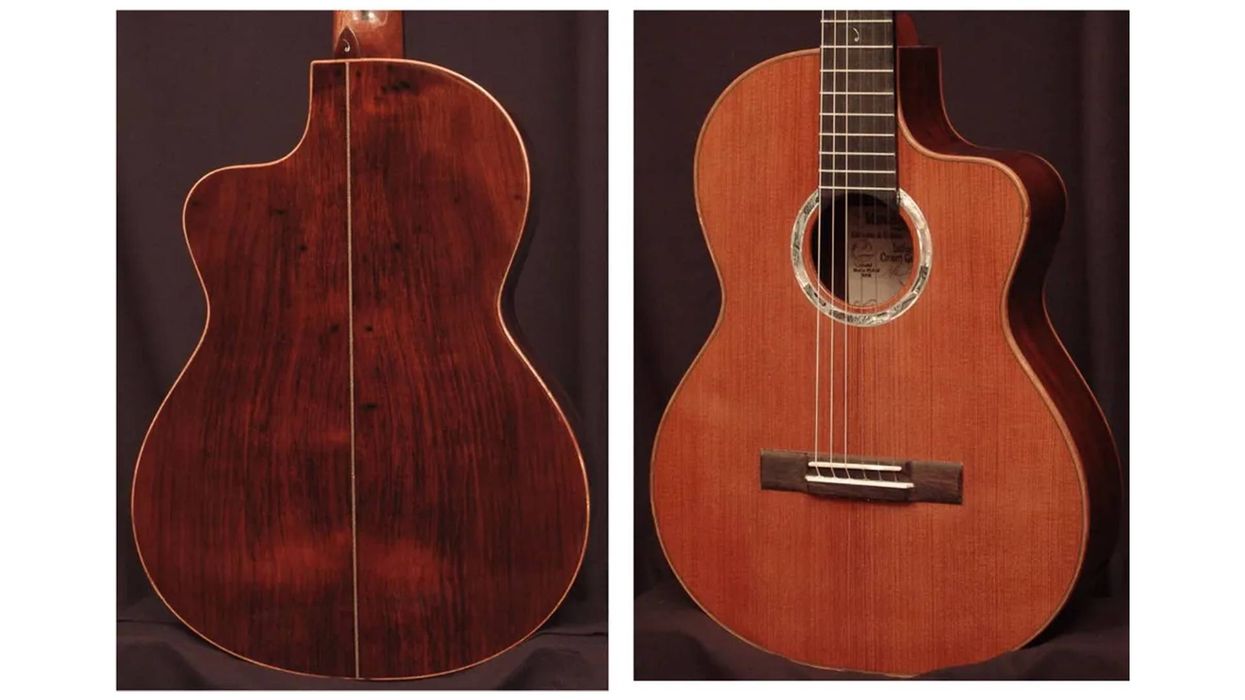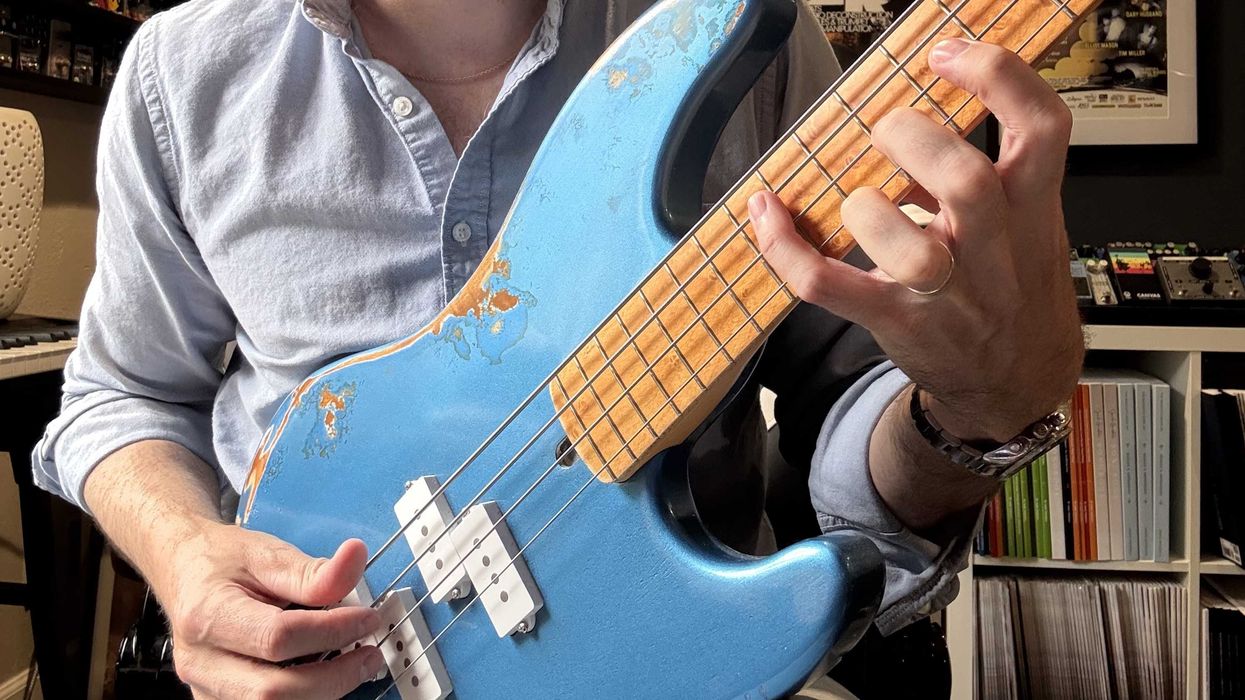The look on Ray’s face was a mixture of surprise and outrage. He was trying to keep his anger in check, but his clenched fists were giving him away. Ray was a fairly new hire who had been making good progress, and I knew he was working hard to make a good impression on me and everyone else in the shop. It was obvious he liked making guitars, but he had a long way to go before the more seasoned builders would trust him with anything sharp. This particular morning, he had been jockeying a bass against the polishing wheel with his back to me as I called out his name twice. I’d noticed the telltale white wires coming from his over-ear sound-protection muffs, and once I had his full attention, I asked him to remove the buds from his ears—permanently.
“I’m listening to Pearl Jam,” he explained. “We make instruments for Jeff Ament, I’m …” Ray struggled for the right words that would convey his dedication and total commitment to his craft. “We’re part of the music business,” he continued with his voice starting to rise in pitch. “I’d think that it would be part of the job—I care about this.” His words trailed off as he shook his head. He knew ear protection was mandatory in the noisy shop, so he couldn’t understand what he’d done wrong. Why was I singling him out?
“Look Ray,” I began, “I know you’re passionate about music, and that’s good. I like that you’re connected to what we do here. But you have to be able to hear the work talking to you.” Ray’s forehead wrinkled below the edge of his knit cap. He remained silent, but his eyes said: What the fuck are you talking about?
It wasn’t the first time (or the last) that my mentoring style elicited this response. There were a dozen ways I could have put this to him, but I wanted it to stick. “You need to listen to the sounds around you,” I explained. “Every operation here makes two kinds of noise: one when you are doing it correctly, and the other when something’s going wrong.” Ray’s expression was now one of curiosity. “Learning those sounds can make you a better craftsman,” I continued, “and can also save your ass.” I again asked him not to use the earbuds, and left him to finish his job.
Excessive noise in a guitar shop—either machinery or loud music—can be detrimental to your long-term hearing. If you are a music fan, this will be a crushing blow to you later in life, so prepare for it now.
Most hearing protection—be it earplugs or over-the-ear muffs—with a sound attenuation factor of 30 to 40 dB reduces the din of a noisy workshop while still allowing you to hear the important sounds that almost subconsciously guide you. Another bonus is that constant noise is fatiguing, so you’ll feel better at the end of the day if you protect your hearing.
Every task has its own song. A planer or jointer chirps at the end of a pass when the feed rollers or tables need adjustment. A band saw has a whole vocabulary of sounds that tell you when guides are worn or misaligned, or if you are cutting too fast or turning too sharply. I have known woodworkers who can hear when a band saw blade is about to break. If you’ve ever worked on a really big one, you know how that gets your attention.
There is a distinct howl that router bits make when they are dulling or when the chip clearance angle is compromised with wood-pitch buildup. Occasionally, bits and blades can have incorrect geometry—even if fresh from the factory or a sharpening service—which makes them dangerous to use. These tools produce unusual sounds that can tip you off immediately. If you return that tool right away, not only will you avoid injury or damaging parts, it will also be clear to the vendor that you didn’t just wear it out.
Hand tools like chisels and planes have a certain sound when they are happy, and complain when they are not. Cabinet scrapers have a signature song when they are properly burred. Drills make a squealing noise when dull, pushed too hard, or when you’ve chosen the wrong speed for the diameter of your bit. The simple acts of filing frets or shaping a string nut each have a smooth tone when things are going well, yet make chattering noises when done incorrectly.
If you spend time working with tools—no matter what you’re making—I’ve made my best case for paying attention to the whispering of the wood and steel surrounding you in the shop. It can save you time, money, and even protect your health.
So, how did that conversation with the shop newbie pan out? Not too long after that, Ray learned about the noise a buffing wheel makes when it gets too close to a guitar’s edge, followed by the sound of the instrument bouncing loudly off the shop floor. Many years later, we laughed about it.
